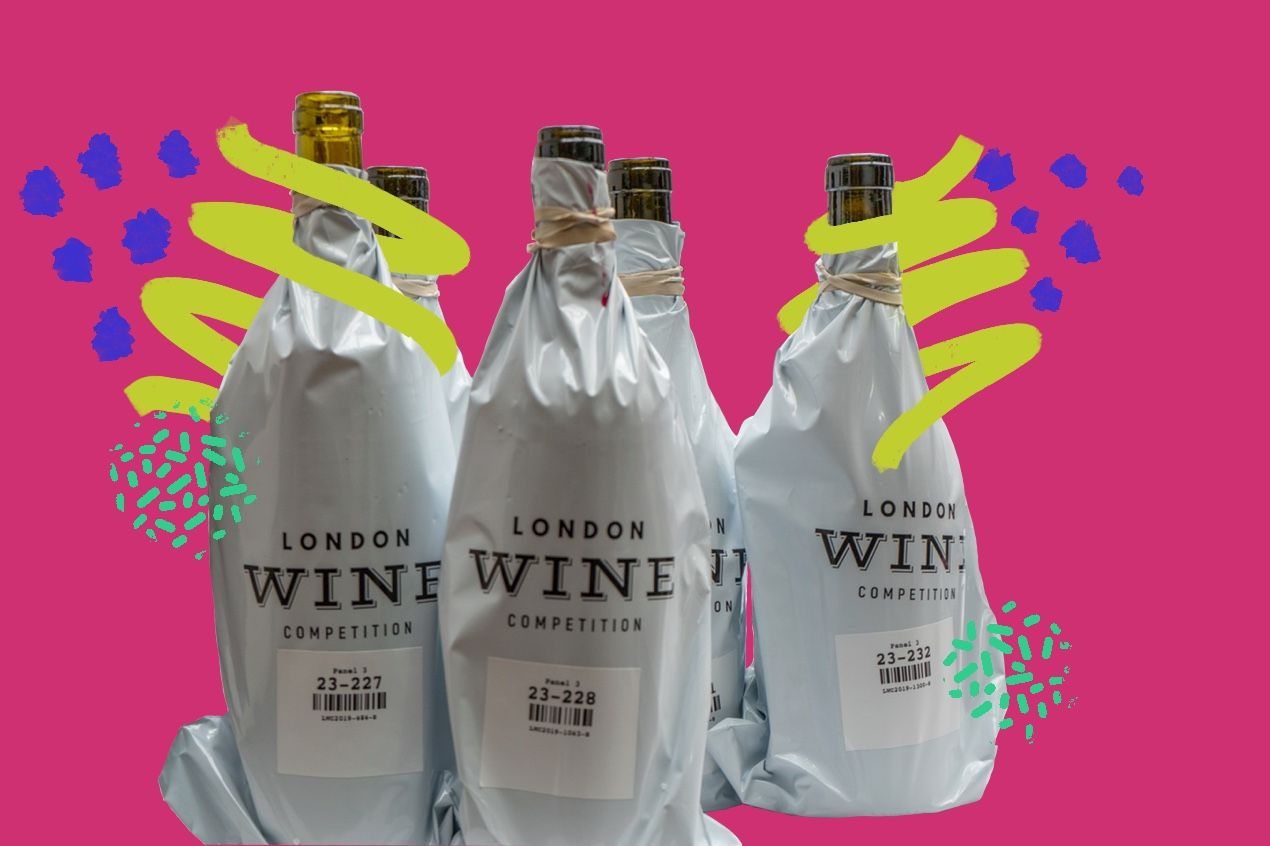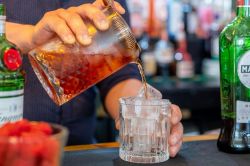Features
Why wine lovers must check out the London Wine Competition
The British capital is the world’s most important wine city - and the London Wine Competition is where the best wines are celebrated.
If the full complexity of the global wine trade can be experienced anywhere, it’s London. There’s nowhere else where you can find such a diversity of bottles from around the world. With its historic links to France and Portugal, its passion for Spanish and Chilean value, and restaurants that offer the best of Napa and Barossa, to name just two legendary international regions, London is unique. This thirsty city guzzles it all, from cheap and cheerful to Grand Cru.
The London Wine Competition exists at the heart of this abundance. With judges plucked from the UK’s hugely knowledgeable wine crowd, it’s a competition that sets great bottles from all four corners of the world against each other. The aim is to find great options for wine buyers, who in turn wish to find something that will appeal to their customers. The wines that succeed at the London Wine Competition are not niche-interest options designed to thrive off the back of trends and fashions - these are delicious, approachable wines that show what is best in the world of viticulture.
Now in its fourth year, The London Wine Competition has quickly assumed a dynamic, unique identity. It’s neither stultified by old-world snobbery nor overly quick to jump on the latest bandwagon, natural or otherwise. It’s just about great wine, of all kinds. This year’s event takes place in March, with the 2021 winners to be announced at the end of that month. Previous year’s winners can be found here.
How is the competition judged?
The London Wine Competition’s approach is simple. Wines are judged on three criteria: quality, value, and appearance. ‘Quality’ takes in five elements: appearance, aroma, body, taste, and aftertaste. Value is a measure of how the wine’s price compares to its quality; and appearance assesses the packaging, taking in factors like label design and information, closure, and overall look. When the final score is totted up, quality, the most important category, weighs twice as heavily as the other two.
How does the judging work?
A rigorous process ensures that only the best wines win the top awards. Initially, wines are tasted blind to determine quality and drinkability - where appropriate, they’re also assessed by variety, style, region, and country. At the next stage, judges are told the wine’s price, which allows them to make a decision on value. Next, judges see the packaging to allow them to assess, in detail, the design, label, and packaging and determine how well that matches up to - or complements - the quality of the wine and its price point. The key question is this: how will this wine be perceived by customers?
The judging doesn’t finish there. Judges can then discuss the wines as a whole, to help them allocate scores in each of the three categories. Then each judge gives her or his score. Finally, the Gold winners and other category winners are re-tasted on the re-judging day to ensure the initial impressions were correct. Nothing is left to chance.
What does it take to win gold?
To win a Gold medal, a beer must score 90 points or more, out of a total of 100. That score is made up of the three different criteria, with double-weight given to the quality section. Silver winners score between 76 and 89; Bronze requires between 65 and 75 points. Although the Gold medal winners are clearly the best in the competition, any wine that wins an award is worthy of your attention.
Who are the judges?
The London Wine Competition’s judges are superbly knowledgeable, with experience of the wine trade across the board. They’re sommeliers, Masters of Wine, wine buyers, restaurant managers, educators, supermarket buyers. They include master sommeliers like Kathrine Larsen, 2014 UK sommelier of year, and Matteo Montone, 2019 Chaîne de Rôtisseurs World’s Best Young Sommelier. Some judges are hugely experienced: Christopher Delalonde, another master sommelier, has been in the business since 1992, a journey that has led him to his current role as head of wine at the Dorchester Hotel. Anne Jones is the wine, spirits, and beer category manager at Waitrose, Britain’s most respected supermarket chain; Roberta Neave is a wine buyer at Star Pubs & Bars. Between them, this varied group of judges has forgotten more about wine than most of us have ever known.
Where do entrants come from?
2020’s big winners, d’Arenberg, are Aussies, of course, but entrants come from wherever wine is made. That includes classic wine-producing countries in Europe, Oceania, America North and South, and Africa. Then there are some surprises - 2020 silver medal winner Secret Garden was made by Sanmac Winery in South Korea, and Lakeview Cellars’ Merlot hails from Canada. If there’s one thing to be drawn from the entrant list for the London Wine Competition, it’s that good wine is increasingly made around the world.
What other categories are there?
In addition to the gold, silver, and bronze awards, several special prizes are handed out. There’s Wine of the Year, and Winery of the Year, both carried off by South Australia’s d’Arenberg in 2020; there’s a variety of prizes for Best in Show by country (no prizes for guessing who won in Australia) and by varietal; and there are wines of the year by quality, value, and packaging. Who’ll be the big winners in 2021? Check back on the London Wine Competition in early April to find out.



















